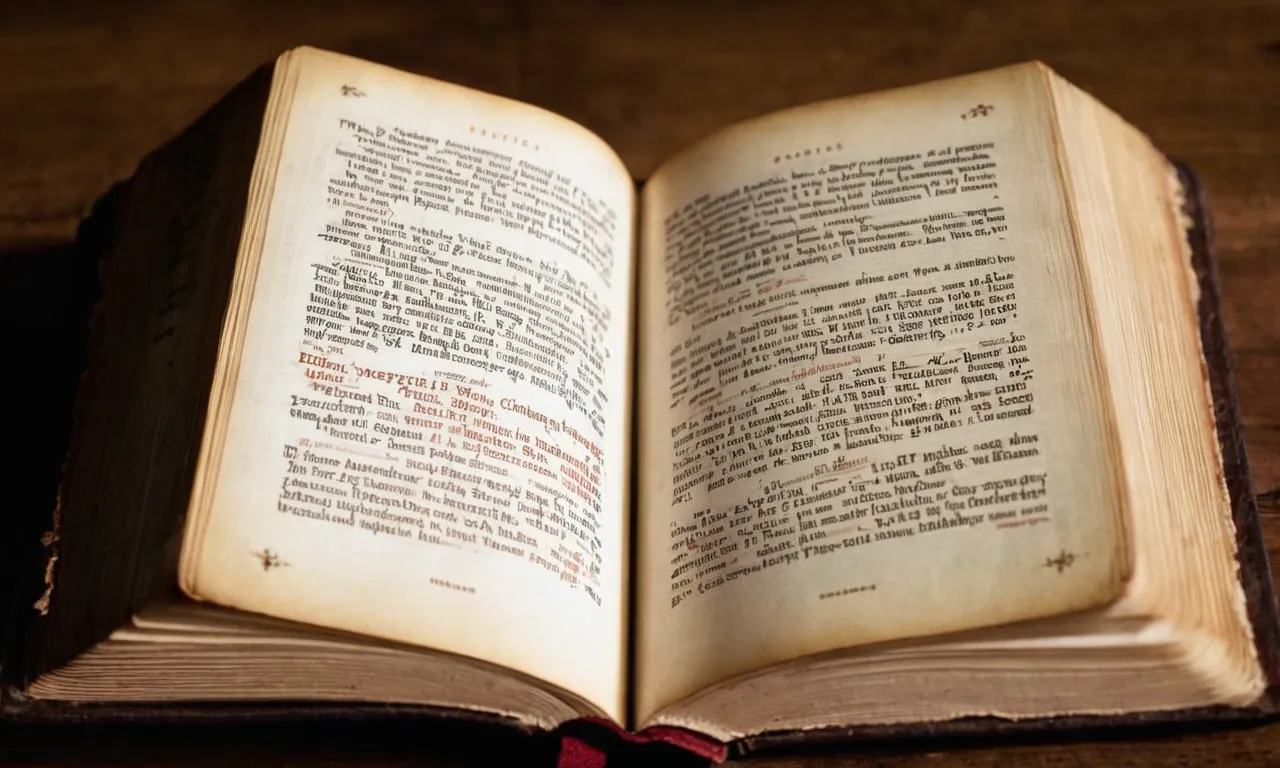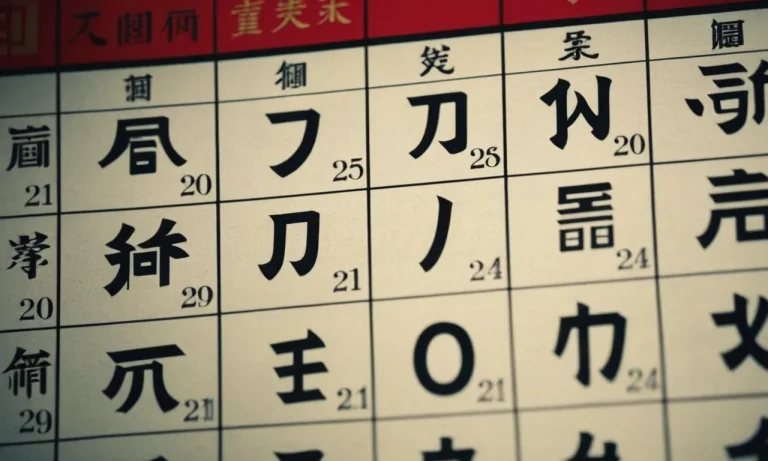What Does The Bible Say About Purgatory?
The concept of purgatory has been widely debated throughout the history of Christianity. For believers who wonder, “what does the Bible say about purgatory?” this is a complex theological question with room for varied interpretations.
If you’re short on time, here’s a quick answer to your question: The word “purgatory” never appears in scripture, yet the concept of an intermediate state between earth and heaven where souls are purified is found in some Biblical passages.
The Catholic Church fully embraced the doctrine, while most Protestant Reformers rejected it.
Defining Purgatory
A Place of Purification
Purgatory is believed by some Christians to be a place or state of purification where souls undergo temporary punishment to achieve the holiness necessary to enter heaven. It is viewed as an intermediate state after physical death for those destined for heaven.
According to this belief, souls in purgatory can be aided by the prayers and good works of the faithful on earth.
Purgatory in Catholic Doctrine
The Catholic Church has taught the doctrine of purgatory since the Middle Ages. According to Catholic teaching, purgatory cleanses the soul of sin so that it can enter heaven free from all effects of sin. Purgatory is not seen as a “second chance” to repent or choose God.
Rather, those entering purgatory are already destined for salvation but need purification from the sins and attachments of earthly life before seeing God face to face.
Interestingly, the word “purgatory” does not appear anywhere in Scripture. The primary Scriptural basis cited in support of purgatory is 2 Maccabees 12:41-46. This passage describes Judas Maccabeus offering prayers and a sin offering on behalf of deceased Jewish soldiers who were idolaters.
The fact that an offering was made on their behalf implies that there is hope even after death.
Rejection by Protestant Reformers
While belief in purgatory was widespread in medieval Catholicism, the Protestant Reformers of the 16th century rejected the doctrine. Reformers like Martin Luther and John Calvin saw it as giving false assurance of salvation because they believed it taught souls could be purified after death when Scripture teaches that after death comes judgement (Hebrews 9:27).
Protestants also argued against purgatory because Scripture states the blood of Christ purifies believers from all sin (1 John 1:7). Reformers taught salvation is by grace alone through faith, not through additional suffering after death.
They wrote extensively against purgatory, viewing it as inconsistent with justification by faith and Christ’s full payment for sins. This reformational thinking gave birth to the rallying cry of “Scripture alone, faith alone, Christ alone.”
Old Testament Hints
Sheol and Gehenna
The Old Testament refers to Sheol as the place of the dead, a shadowy underworld where the deceased exist as “shades” or “ghosts” without judgment or reward (Job 10:21). Gehenna later became a figurative name for the place of everlasting punishment prepared for the devil and his angels (Matthew 25:41).
While not definitive proof of purgatory, these concepts suggest the possibility of an intermediate state after death to expiate sins.
Prayers for the Dead
In 2 Maccabees 12:39-46, Judas Maccabee and his soldiers collect money to offer a sin offering on behalf of men killed in battle who were found to be idolaters. The text says that “In doing this he acted in a very excellent and noble way,” reminding us “that the dead will rise again.”
This implies belief in an intermediate state after death where prayers can benefit the deceased.
A 2022 survey from the Pew Research Center found that 29% of American adults believe in purgatory, with 67% of Catholics and 15% of Protestants affirming belief in this doctrine.
Suffering as Purification
The concept of redemptive suffering is seen in Daniel 12:10 and Zechariah 13:9, which speak metaphorically of trials as “refining fire” that purifies God’s people. Such passages connect suffering with repentance and spiritual growth.
While not direct evidence of purgatory, they resonate with the Catholic purgatory doctrine centered on purification.
Belief in postmortem purgation is also expressed in extra-canonical writings like 2 Esdras, which refers to punishments after death to purge people of their sins.
New Testament References
Jesus’ Teachings on Sin
In several passages in the Gospels, Jesus teaches about sin and forgiveness. He emphasizes the importance of repenting from sin, forgiving others, and receiving God’s forgiveness (Matthew 6:14-15; Mark 11:25; Luke 17:3-4).
Jesus also warns about the seriousness of sin, saying it would be better to lose body parts than to sin and be thrown into hell (Matthew 5:29-30; Mark 9:43-48). So while Jesus does not explicitly mention a state like purgatory, His teachings suggest there are consequences for unrepented sin.
1 Corinthians 3:10-15
This passage uses metaphorical language to describe God testing each person’s spiritual works after death. It refers to fire that will test what sort remains, and if a person’s works burn up they will “suffer loss.”
Some interpret this as a description of purgatory – a state of purification before entering God’s presence. However, others argue this fire refers to the judgment all believers will face, not necessarily a time of purgation (Hebrews 12:28-29).
Matthew 12:32 and Sin in the “Age to Come”
In this verse, Jesus distinguishes between sin that can be forgiven in “this age” or in the “age to come.” Some see this as evidence that certain sins can be purified and forgiven after death, during an intermediate state like purgatory. Others claim Jesus is simply referring to the unpardonable sin (blasphemy against the Holy Spirit) that cannot be forgiven in this age or the age to come.
Church History and Theological Debates
Development of the Doctrine
The concept of purgatory has evolved over centuries in Catholic theology. In the early Church, prayer for the dead was common, but the doctrine of purgatory as a place of purification after death was not fully developed until the 12th and 13th centuries.
Thomas Aquinas provided one of the most complete explanations of purgatory, writing that it was a place of purification for those who died in God’s grace but were not entirely free of sin. The doctrine was affirmed at the councils of Florence (1439) and Trent (1545-1563).
Belief in purgatory and the need to pray for souls undergoing purification became deeply ingrained in medieval Catholic piety and religious practice.
Criticisms and Alternate Views
The Protestant Reformers of the 16th century rejected the Catholic doctrine of purgatory. Martin Luther denounced it, seeing it as an obstacle to justification by faith alone. John Calvin saw purgatory as inconsistent with the sufficiency of Christ’s atonement.
Most Protestant groups today do not accept purgatory as a place but see salvation as fully accomplished through Christ. Some Protestants posit an intermediate state in which the soul undergoes sanctification after death, but do not see this process as punitive.
Eastern Orthodox theology affirms prayer for the departed but does not envision purgatory as a “place” of satisfaction as in Catholicism. It sees purification as part of the soul’s journey to God after death.
Ongoing Catholic-Protestant Divide
Purgatory remains one of the key doctrinal divides between Catholics and Protestants today. For Catholics, denying purgatory rejects the need for purification and the efficacy of prayers and Masses for the dead.
For Protestants, purgatory is an unbiblical “invention” that calls into question the completeness of Christ’s atonement. Some contemporary Catholic-Protestant dialogues have approached potential consensus on prayers for the departed but not on the theological structure of purgatory itself.
The divide reflects deeper disagreements over authority, justification, and the nature of the afterlife that trace back to the Reformation.https://www.catholic.com/magazine/print-edition/is-purgatory-in-the-bible
Conclusion
Throughout history, thoughtful Christians have wrestled with the theological dilemma of what happens after death to those who are neither fully righteous nor irredeemably wicked. While purgatory is never explicitly mentioned in scripture, some passages hint at an intermediate purification on the journey toward heaven.
But questions remain, with no definitive consensus among believers.
This complex topic is likely to be debated for ages to come. For those seeking answers from scripture, prayerful study and guidance from the Holy Spirit may illuminate this great mystery in ways that satisfy the soul.







